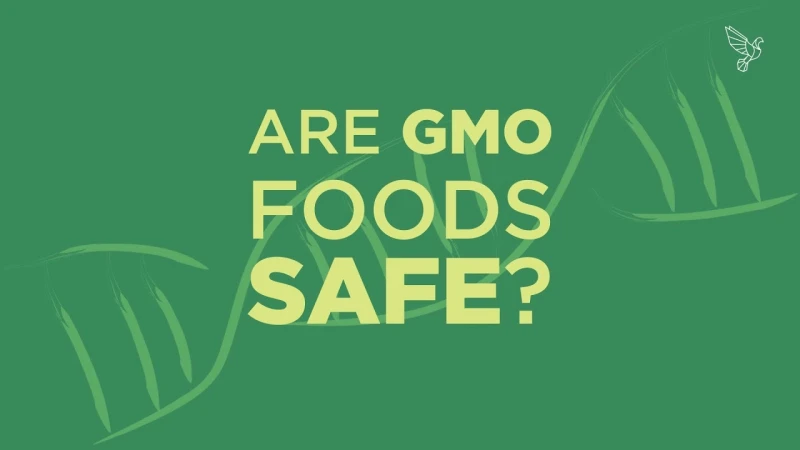Just 27% of Americans think genetically modified foods are safe to eat. It’s time to set the record straight
Just 27% of Americans think genetically modified foods are safe to eat. It’s time to set the record straight


Thirty years after tomatoes became the first genetically modified produce sold in the U.S., lots of people remain skeptical of science-ified foods. In a 2020 Pew Research Center survey, just 27% of Americans said they felt genetically modified foods are safe to eat, while 38% said they’re unsafe and 33% weren’t sure.
People in the U.S. and Canada have been eating GMOs for decades, whereas they’re consumed less frequently overseas. If GMOs were linked to serious health problems, researchers would expect to see them reflected in comparisons of the health of North Americans relative to Europeans. But “when we look at the data,” [agriculture Professor Fred] Gould says, “we don’t see any signs.” Indeed, researchers have found no evidence of GMO-related increases in cancer, obesity, kidney disease, gastrointestinal issues, autism, or food allergies in the U.S. and Canada versus Europe. Research in animals has also shown no evidence that consuming GMOs causes genetic mutations, organ damage, or fertility problems.
“We’re very careful about saying there are no effects. We haven’t found any effects,” Gould says. There’s always a chance new risks could come to light with time, he says, but he feels that’s unlikely based on what the science has shown so far.
This is an excerpt. Read the original post here

 | Videos | More... |

Video: Nuclear energy will destroy us? Global warming is an existential threat? Chemicals are massacring bees? Donate to the Green Industrial Complex!
 | Bees & Pollinators | More... |

GLP podcast: Science journalism is a mess. Here’s how to fix it

Mosquito massacre: Can we safely tackle malaria with a CRISPR gene drive?

Are we facing an ‘Insect Apocalypse’ caused by ‘intensive, industrial’ farming and agricultural chemicals? The media say yes; Science says ‘no’
 | Infographics | More... |

Infographic: Global regulatory and health research agencies on whether glyphosate causes cancer
 | GMO FAQs | More... |

Why is there controversy over GMO foods but not GMO drugs?

How are GMOs labeled around the world?

How does genetic engineering differ from conventional breeding?
 | GLP Profiles | More... |

Alex Jones: Right-wing conspiracy theorist stokes fear of GMOs, pesticides to sell ‘health supplements’




 Viewpoint — Fact checking MAHA mythmakers: How wellness influencers and RFK, Jr. undermine American science and health
Viewpoint — Fact checking MAHA mythmakers: How wellness influencers and RFK, Jr. undermine American science and health Viewpoint: Video — Big Solar is gobbling up productive agricultural land and hurting farmers yet providing little energy or sustainabilty gains
Viewpoint: Video — Big Solar is gobbling up productive agricultural land and hurting farmers yet providing little energy or sustainabilty gains Fighting deforestation with CO2: Biotechnology breakthrough creates sustainable palm oil alternative for cosmetics
Fighting deforestation with CO2: Biotechnology breakthrough creates sustainable palm oil alternative for cosmetics Trust issues: What happens when therapists use ChatGPT?
Trust issues: What happens when therapists use ChatGPT? 30-year-old tomato line shows genetic resistance to devastating virus
30-year-old tomato line shows genetic resistance to devastating virus California, Washington, Oregon forge immunization alliance to safeguard vaccine access against federal undermining
California, Washington, Oregon forge immunization alliance to safeguard vaccine access against federal undermining The free-range chicken dilemma: Better for birds, but with substantial costs
The free-range chicken dilemma: Better for birds, but with substantial costs ‘You have to treat the brain first’: Rethinking chronic pain with Sanjay Gupta
‘You have to treat the brain first’: Rethinking chronic pain with Sanjay Gupta
